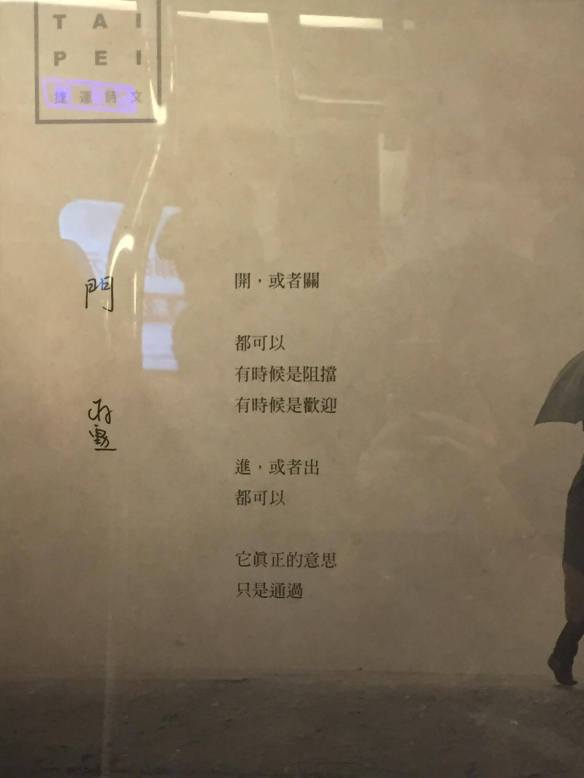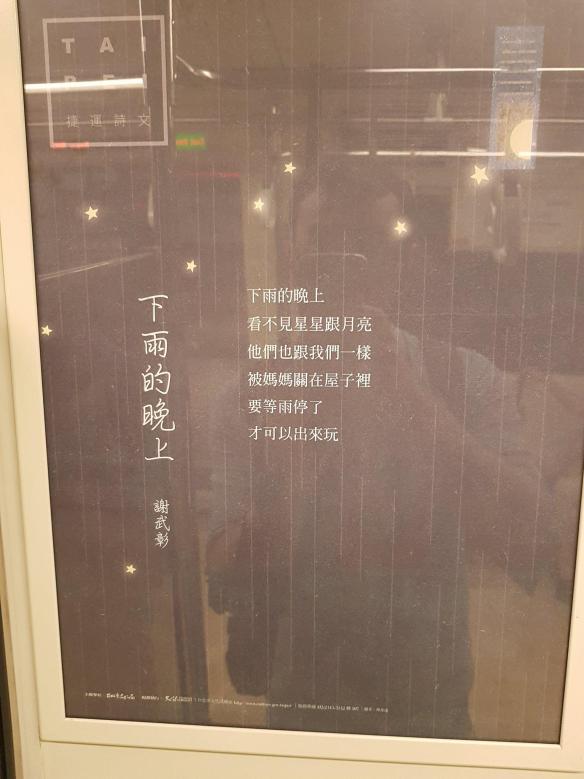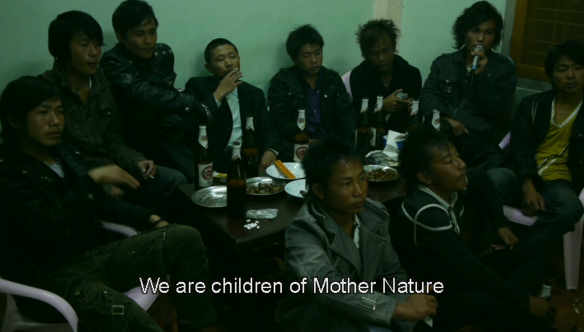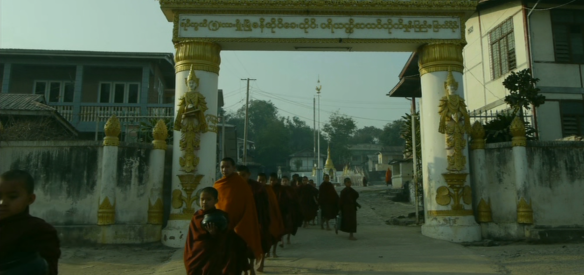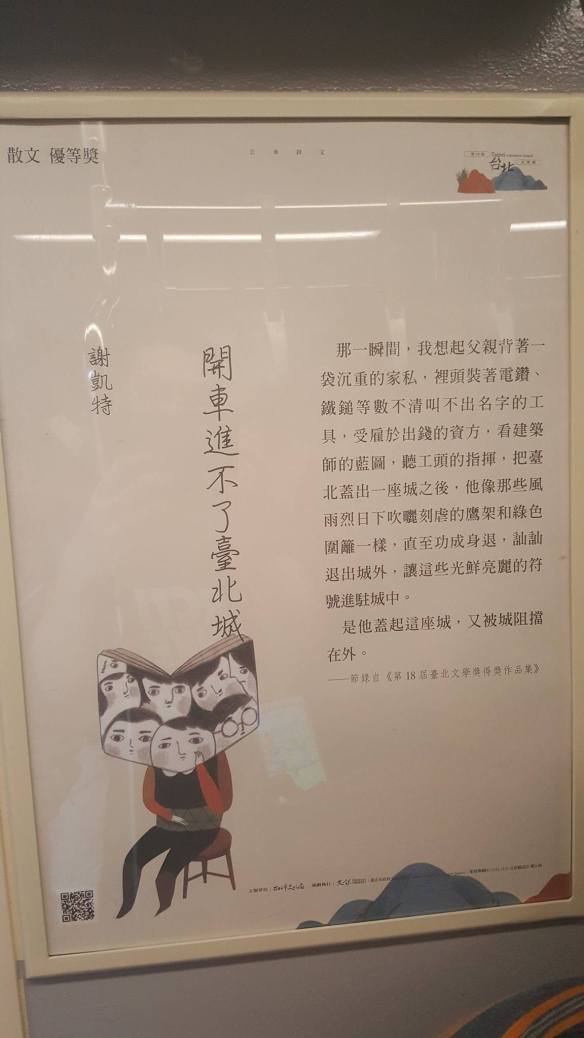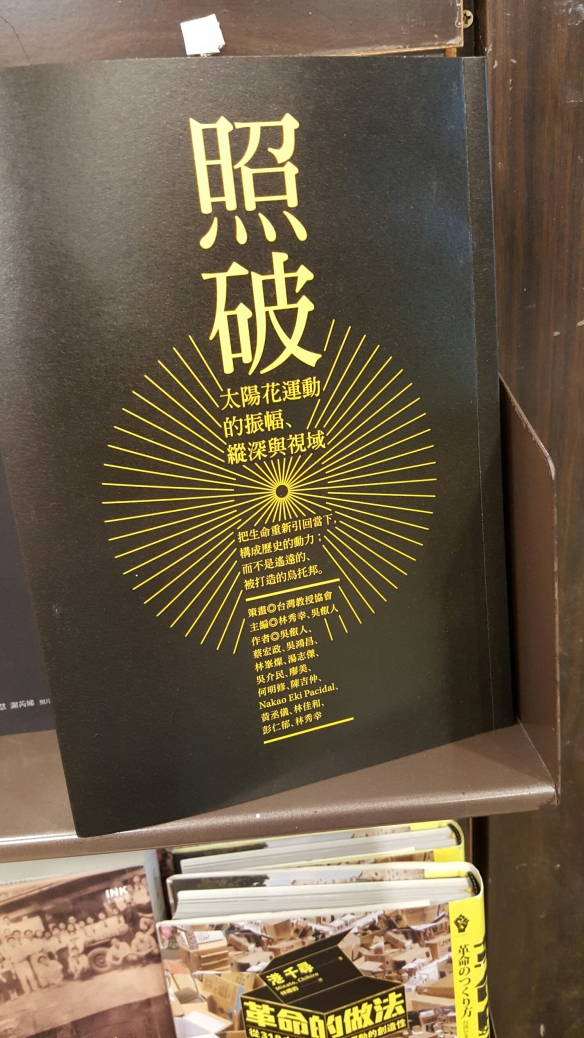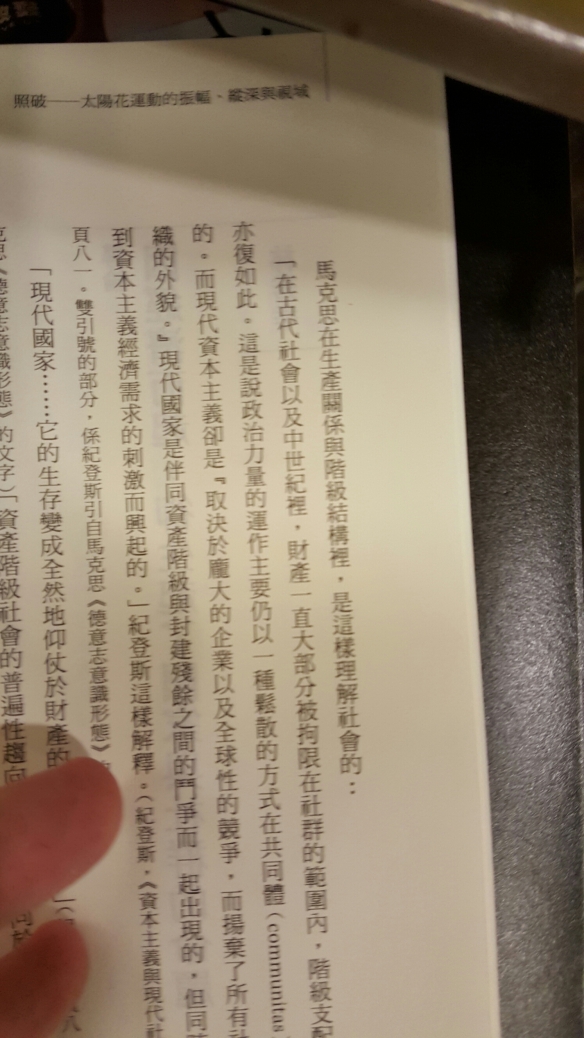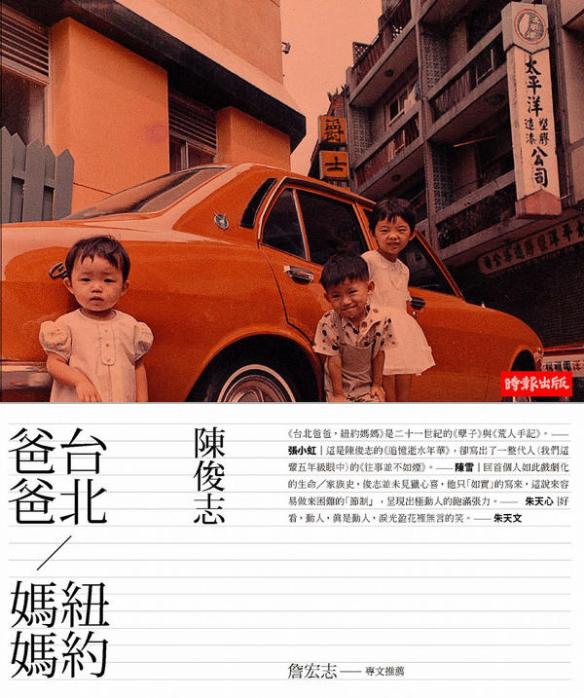
Initially, I was quite excited by this book, as I’d previously watched a documentary by this late director (I reviewed it here). The book starts off with a moving account of the disintegration of the author’s family and the effect of his sister’s death on him and the larger family.
As the book develops, however, the same story is repeated ad nauseum and seemed almost like the author was trying to impose his own moral interpretation of his riches to rags story on the reader. The tone also seemed more appropriate to the essay format, rather than a long-form novel as he seemed to get a bit lost in his own narration after giving the broad strokes of the initial story. There are interesting aspects to the narrative. In the context of the gay marriage referendum, there has been a shift towards conservatism within the gay movement, and this has led to clashes within the movement, between those attempting to be inclusive to the extent of embracing what they call “chem sex culture” and BDSM fans and those in pursuit of (what their opponents would call) heteronormativity. The author seems pulled by these two conflicting strands of the gay community throughout, which may be what drives his switches between the first and third person at points throughout the book.
I’ve never really been a fan of autobiographies and towards the end of the book, it started to grate on my nerves a bit. The author teases the reader a little by suggesting he’s going to reveal the details of his life, but apart from brief references to a few of his relationships, a disjointed scene where we assume he’s having chem sex, the author’s main purpose throughout the novel seems to be to air the dirty laundry of the rest of his family members, while he maintains a Madonna-like status of victimhood throughout. There’s a lot of anger and resentment in the book, and this comes across in passive-aggressive comments and made the book come across as quite monotonous. Whereas in fictional works like Moonlight, there is a layer of separation between the author/director and the anger of the protagonist towards their family, the first person narrative here left us with nowhere to go, as the author doesn’t seem willing to reflect on the larger social context and systematic problems surrounding his family’s downfall in the same way that Moonlight tries to give the protagonist’s mother a human side.
We almost get to a scene comparable to the scene in Moonlight when the author faces his father’s mortality, but it doesn’t have the same impact for me as the film. Reading the book was almost like listening to someone you don’t know gossip about the people in their life, or someone showing you their family photo album. As a reader, I found it hard to care. Maybe due to the author’s familiarity with his family members, we’re never given a complete picture of them, just who they are as they relate to him, and, frequently, how they’ve victimized him. The central theme of the book is the tragedy that occurs in the author’s childhood. The tone flits between brief moments in which the author portrays something genuinely moving, snarky quips, boasting and wallowing in self-pity. While it’s nice that the author broke up the heaviness of the tragic portrayal of his sister’s death and his family’s disintegration, the other bits of the book felt a little posed, and there was a lot of name-dropping. Essentially they are there to show us what a famous, witty and high-performing luvvie the author is despite the loss of his sister and the break-up of his family home initiated by his father.
If I were to take a more cynical view on the change between the first and third person I mentioned above, it could be seen as an attempt to “be literary”. Combined with certain other comments throughout the book like “The small hole in the back of the intricate doll, now looking back, of course, was a massive symbol for leaving my carefree childhood”, just came across as pretentious attempts to sound educated. I felt this came across in a passage in which the author talks about drug-fueled sexual experiences at the Taiwan Youth Park, and he switches from the first to the third person, reflecting perhaps the disassociation that he feels from taking Ketamine:
一直到青年公園成為台灣gay beach他才懂得一枚渾圓無瑕的屁眼是如此的人間至樂。沖澡間總有誘人的底迪無邪地以屁眼向你召喚,一起騎了車吃完建中黑糖剉冰就是如奶蜜甜糖的幹底迪床戲。IKEA夏日涼床上好多美麗的男孩永恆停留在他們高潮來前童稚的眉頭微蹙,屁眼戲劇性地陡地縮緊我也忍不住要射了的迷離K世界,我想起古典的英國文學史課堂上那些草原芬芳的下午。男孩們滿足的輕喟很快在你身上趴著睡著,包裹著他們青春身體的甜淡香味,穿透裊裊迴繞的Rush餘韻,直撲鼻端讓我跌入底迪歳月曾經那麼無邪的往事如煙。
老去的男人後來綿延璀璨的性史再也沒法像古典時期那麼甜美可人了。隨手翻到一頁,聞了Rush嗑了E用了勾媚兒的性愛體驗,在鐵皮書裡用最複雜的符碼象徵交互指涉,都難以取代陰莖屁眼乳頭霎時的萬般感受。一沙一世界,蔓延展開成花花天地。 屁眼生出花朵,陽具是燦爛的樹。他感到自己的身體變成一本巨大的鐵皮書,鏤刻著感官的年輪和耳語的密碼。在我耳邊輕輕呢喃,身體就是記憶。
It wasn’t until the Taiwan Youth Park became Taiwan’s gay beach that he understood how much earthly pleasure could be derived from a perfectly round asshole. In the shower rooms there were always seductive twinks, beckoning you over brazenly with their assholes, then after riding a motorcycle together and eating shaved ice with brown sugar from the shop beside Jianguo High School, it was time for the even sweeter treat of fucking them. Lots of pretty boys will remain frozen with their brow slightly furrowed in the childish expression that comes just before an orgasm on an IKEA sun lounger, their assholes suddenly tightening dramatically as I can’t stop myself cumming in that blurry world of K, I thought of the fragrant scent of afternoons on the moors from my English Literature classes. The boys would sigh gently in satisfaction and then cuddle against you to sleep, as you hold their youthful bodies, with their faint sweet smell, with the lingering whiffs of the leftover Rush adding to the mix, and as the smell hits the nostrils you fall into the naivete just like that of youth, and the past goes up in smoke.
As men age, the ongoing resplendent sexual history is never as sweet and innocent as the classical era. Perusing to a certain page, sexual experience with the smell of rush, on E and Foxy Methoxy (5-MEO-Dipt), implying each other’s guilt with the most complex of symbols in an iron corrugated book, it’s hard to replace the myriad momentary sensations of the penis, the asshole and the nipple. The world on a grain of sand, spreading out and blossoming everywhere. A flower blossoms from the asshole, the penis is an awesome tree. He felt his entire body had turned into an iron-clad book, with the age rings of sensation and the codes of whispered nothings. Whispering in my ear, the body is memory itself.
I liked the fact that he inserted an apparently random thought into a sexual experience, as it made it ring truer, but everything the author does seems aimed at proving his extensive learning, which is why the random thought is about his English Literature classes.
In another of the brief interludes where we get a glimpse of the author himself and not just his family, he talks about his sexual relationship with one of his long-term partners:
晚上我們總是到純樸的民家洗澡,一鎖門,老羅和我熾熱摸索彼此。滑膩的肥皂泡沫穿過我們的股溝,我們挺直的陰莖。門外的部隊同儕不耐地敲門問詢,春光乍洩的梁朝偉啐了口水,猛烈進入張國榮,沒有KY,沒有保險套。這是我們最初芬芳的乙醚記憶,在意亂情迷的夏夜,穿透了層層記憶而來。
At night we always went to the rustic local showers. As soon as we locked the door Lao Luo and I would start passionately groping at each other. The soap suds flowed between our buttocks and around our erect cocks. Our army mates would knock impatiently on the door as Tony Leung from Happy Together spits as he enters Leslie Cheung, without any KY, without a condom. This was our diethyl ether-scented first memory, entranced with passion on a Summer evening, and it cuts through layer upon layer of memory to emerge again.
Some of the author’s comments on class are a bit over the top, particularly as he’s aware himself that he’s one generation away from a similar level of poverty. He’s constantly emphasizing how educated he is as a way to elevate himself:
那一年,我和老羅都剛退伍,我繼續在補習班教英文,努力存錢準備出國留學。他是油漆工人,下工後愛喝小酒,和朋友打電動玩具和柏青哥。我們沒有共同的朋友,我討厭他的狐群狗黨,他覺得我的朋友都是外星人。我們兩人一旦吵架,沒有緩衝地帶,沒有調停人,只有兩個人硬碰硬對幹。年輕的我們總是不明白,有些時候,再怎麼深刻的愛情是跨不了階級這一關的。
That year, when Lao Luo and I had just gotten out of the army, I continued to teach English at a cram school, working hard to earn money to study abroad. He worked painting houses, and when he got off work he liked to go for a tipple, and play arcade and pachinko games with his friends. We had no friends in common and I hated the pack of scoundrels he hung out with, whereas he thought all my friends were from another planet. As soon as we started to argue, there was no buffer zone, there was noone to mediate, there was just the two of us clashing hard and going after each other. Young as we were, we didn’t understand that sometimes, no matter how deep the love you feel, it can’t cross the class divide.
One interesting aspect of the narrative is how the mainlander/local Taiwanese division functioned beside class divisions. His father’s family is local Taiwanese, which plays a large part in his father’s rags to riches story. The author’s paternal aunt marries a 「不愛講話的外省老芋仔」 (a taciturn mainlander), who is 30 years older than she is. Another of his paternal aunts manages to escape from a 「wife-beater」only to marry a butcher who starts another family on the other side of the Taiwan Strait. When she goes to confront her husband’s wife in China about this, the fight that results makes the local paper in Guangzhou and the author jokingly refers to it as 「為國爭光」(winning glory for one’s country). The author’s father is said to have a consistently patriarchal attitude to everything that befalls his sisters, even though they are often providing him money to provide him investment for his hair-brained get-rich-quick schemes and bail him out of financial trouble.
Overall, it’s worth a read, although it might wear on your nerves a bit. The author, also a director, passed away recently.

 他們已經上了客運要從海邊回到城市。雖然曬傷了,不過身體還沒感覺,只是全身疲憊,終於可以坐下來了很舒服。因為整晚都在眾多篝火之間跳舞、玩水,所以除了體味,J跟K兩個人身上還有一股煙味,混著海水留下的那種腥味。客運坐滿了跟他們一樣過完了篝火節要回城市的人,因此,他們不能跟平常一樣坐在前後兩排的雙人座,隔著椅背講話,只能並坐在同一張椅子上。雖然空間有限,J還是照常地把雙腿張開。K感到J的腿輕輕地貼著自已的腿,臉稍微熱了起來。車離開車站的時候,J已經睡著了,但K還沒有睡意,一直看著窗外。海平線那兒,晨光剛開始流過海面,覺得很美。
他們已經上了客運要從海邊回到城市。雖然曬傷了,不過身體還沒感覺,只是全身疲憊,終於可以坐下來了很舒服。因為整晚都在眾多篝火之間跳舞、玩水,所以除了體味,J跟K兩個人身上還有一股煙味,混著海水留下的那種腥味。客運坐滿了跟他們一樣過完了篝火節要回城市的人,因此,他們不能跟平常一樣坐在前後兩排的雙人座,隔著椅背講話,只能並坐在同一張椅子上。雖然空間有限,J還是照常地把雙腿張開。K感到J的腿輕輕地貼著自已的腿,臉稍微熱了起來。車離開車站的時候,J已經睡著了,但K還沒有睡意,一直看著窗外。海平線那兒,晨光剛開始流過海面,覺得很美。 我最近在看一本名為《Less》的同志小說。主角Less是一位年近五十的同志小說家,他在二十幾歳的時候曾經跟一位比他大二十歳的大師級詩人在一起,但他四十幾歳的時候則是跟一位比他小二十歳的青年交往。然而,正當Less要邁入生命的後半段時,那位現在已經三十幾歳的情人找到了跟他年紀相近的伙伴,所以與Less分手。
我最近在看一本名為《Less》的同志小說。主角Less是一位年近五十的同志小說家,他在二十幾歳的時候曾經跟一位比他大二十歳的大師級詩人在一起,但他四十幾歳的時候則是跟一位比他小二十歳的青年交往。然而,正當Less要邁入生命的後半段時,那位現在已經三十幾歳的情人找到了跟他年紀相近的伙伴,所以與Less分手。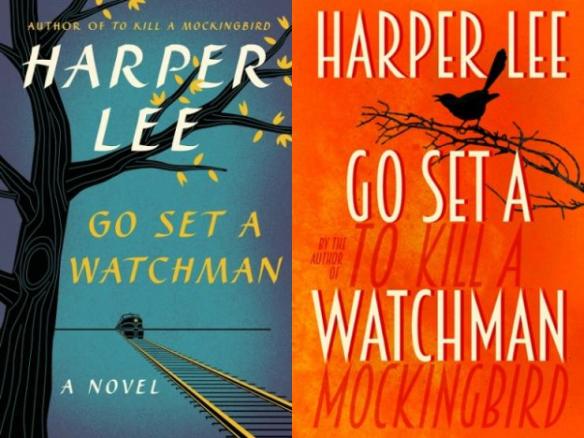 (Contains spoilers) Go Set a Watchman is really a story that completes To Kill a Mockingbird and seems more relevant to the contemporary debate over race relations. The title is a quote from The Prophecy Against Babylon in Isaiah 21:
(Contains spoilers) Go Set a Watchman is really a story that completes To Kill a Mockingbird and seems more relevant to the contemporary debate over race relations. The title is a quote from The Prophecy Against Babylon in Isaiah 21: